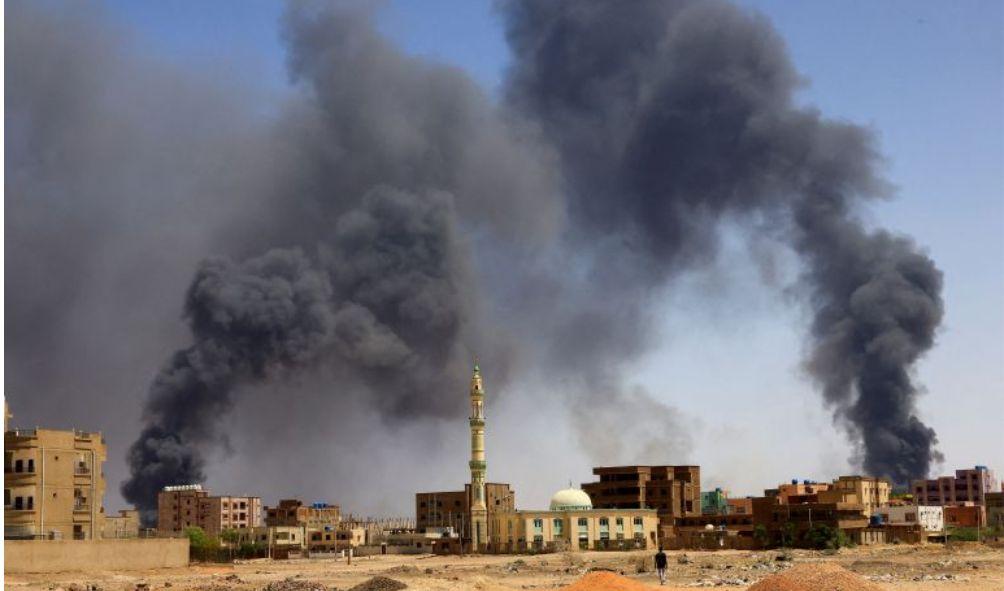Sudan Conflict Could Displace 800,000, Warns UN
Monday, the United Nations issued a warning that the conflict in Sudan could force 800,000 people to flee the country, as fighting between rival military factions continued in the capital despite a ceasefire.
Since the conflict between the Sudanese army and the paramilitary Rapid Support Forces (RSF) erupted on April 15, hundreds of people have been killed and thousands have been wounded in 16 days of fighting.
The crisis triggered a humanitarian catastrophe, damaged large portions of Khartoum, risked attracting regional powers, and reignited the conflict in the Darfur region.
In the power struggle between the army chief and RSF chief, who shared control of the government after a coup in 2021 but fell out over a planned transition to civilian rule, many fear for their lives.
ALSO READ: UN and World Leaders Assist Ruto in Resolving Sudan Crisis from Kenya
Sunday, both sides agreed to a 72-hour extension of a ceasefire that had been repeatedly violated, and the United Nations told Reuters that rival forces may hold ceasefire talks in Saudi Arabia. On Monday, however, airstrikes and artillery rang out as smoke hung over Khartoum and neighboring cities.
Raouf Mazou, a U.N. official, stated that the organization’s refugee agency was preparing for an exodus of 815,500 people. Including 580,000 Sudanese and foreign refugees currently residing in the country. The population of the country is 46 million.
Some 73,000 have already left Sudan, he said.
Egypt reported that 40,000 Sudanese had crossed its border, and those who made the journey reported that it was difficult. Others have traveled to Chad, South Sudan, and Ethiopia, or have taken evacuation boats across the Red Sea to Saudi Arabia.
The health ministry reported at least 528 fatalities and 4,599 injuries. The United Nations has reported a similar number of fatalities, but they believe the actual number is significantly higher.
HARDSHIP, DANGER
During the past week, foreign governments withdrew their citizens from air, sea, and land operations. Although several countries ceased their efforts. The U.S. government reported on Monday that its convoys evacuated more than 700 people. From Khartoum to the Red Sea port of Port Sudan over the weekend.
After evacuating nearly 2,200 people, the United Kingdom stated it was exploring ways to provide humanitarian assistance to Sudan alongside its international allies, the United Nations, and aid organizations.
Those Sudanese who remained behind faced hardship and peril.
Abdelbagi, a barber in Khartoum, stated that he works for two or three hours and then closes his shop because it is no longer safe. However, he continued to work because prices were rising.
People who ventured into the streets on Monday were astounded by the change.
“We saw dead bodies. The completely looted industrial district. Mohamed Ezzeldin, a resident, remarked, “We saw individuals carrying televisions on their backs and large sacks stolen from factories.”
Uncertain power and water supplies, a lack of food and fuel, the inaccessibility of most hospitals and clinics, and escalating transportation costs make it increasingly difficult to evacuate.
The United Nations and other aid organizations have suspended services, but the World Food Programme announced on Monday that it would resume operations in more secure areas after personnel were killed in the early stages of the conflict.
“The scale and speed of what is unfolding in Sudan is unprecedented,” said Martin Griffiths, a senior United Nations official for humanitarian and emergency relief who will travel to Sudan on Tuesday.
CEASEFIRE VIOLATIONS
Victoria, one of the tea vendors who used to line the streets of Khartoum before the fighting began, stated that her children are struggling to comprehend what is occurring.
“Therefore, I risk my life to try to work, and if God helps me, I’ll provide food for them; if not, I’ll keep trying.” “However, doing nothing and being fearful is not helpful,” she said.
Jamila, who remains in Khartoum with her family, consumes only one meal per day due to the scarcity of food. The RSF is stationed in front of their residence and refuses to leave. “The sound of fighting is in our ears all day,” she said.
Monday, both sides reported progress without commenting directly on the ceasefire violations.
The army reported that it had halved the RSF’s combat effectiveness and prevented it from attempting to reinforce its positions in the capital. The RSF stated that it still controls the majority of Khartoum and was actively repelling army reinforcements.
Reuters was unable to confirm either party’s claims
Sudan Conflict Could Displace 800,000, Warns UN
HEY READER. PLEASE SUPPORT THIS SITE BY CLICKING ADS. DON’T FORGET TO HIT THE NOTIFICATION BELL FOR MORE UPDATES AROUND THE GLOBE.
